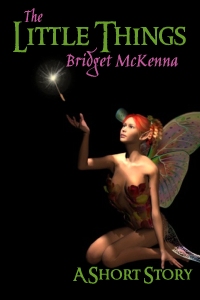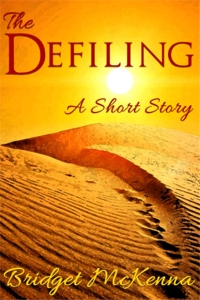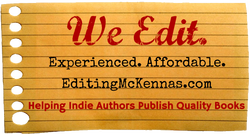
I wondered about this when I was first dippng my toes in the indie waters this time last year, so I asked a couple of experienced people I respected whether they thought it was necessary and beneficial, and they said absolutely yes. I created my publishing company, Ravenscourt Press, and got on with the business of publishing some books. It did not then occur to me that in the minds of many people I was doing something wrong.
A discussion elsewhere in the indie community a while back brought up the question of whether or not indie publishers should form their own publishing imprint. The blog author was not especially in favor of it and asked for opinions. As the commenters began to chime in, the idea of creating a publishing entity for self-published books was labeled “not right”, “criminal”, “fake”, “duping the reader”, “dishonest”, “deception”, and “morally questionable” just in the first handful of comments. I think I may have been the first commenter to say I favored the idea:
"I do put a publisher imprint on my books. I don’t personally perceive it as a deception simply because it’s me paying me what I earn [...] and I’m not certain where morals enter into the decision. Your mileage may, of course, vary. My books are a part of my business as an author, and my publisher name is the public-facing identity of that business."
Here are some quotes from dissenting opinions:
"There’s just something not right—criminal, even—about making up a “business entity” for the sake of making one’s book look more professionally appealing. I’m sure real, actual presses out there take great pride in their work and for an indie author to just make one up is a little cheap and inconsiderate, I say. ...it’s just a matter of integrity and a respect for business ethics."
"Self-published authors, who thinks they’re a small press because of a label, are silly.... I believe folks do imprints, thinking readers will miraculously buy their works because of it."
"It doesn't seem right to get ahead (if one even does) by essentially duping the reader. It’s dishonest."
"Self-publishers pretending they’re presses make a bad name for legitimate small press operations that do have a selection process for choosing titles."
"...because it is deception. That’s not only morally questionable but it often backfires."
"I wouldn’t want to deceive the audience."
"As a writer, I could never feel comfortable doing something like this."
"I believe those who are saying they’re just creating a press for business purposes are choosing to ignore the consequences, intended or not, of putting that business name in the publisher box on the KDP. It implies to the reader that a book was published by a true press with an editor (not the author) who runs a submissions process and serves as a gatekeeper, even if not so stringent a one as one gets with the big presses."
"Readers who wouldn’t try self-published authors because they fear low standards may be tricked into trying your book."
After my comment, other author-publishers chimed in on the pro side:
"There is nothing wrong with creating your own business whether it’s books, dresses, or gift items. A product is a product no matter what it’s form is. And I don’t understand this concept of morality that comes into it. You’re either in business or you’re not."
"I’m just not understanding why being up front about approaching selling books as a business (separate from the craft of writing them) would be perceived as a lie. Your readers want a good book. If you’re giving them that, how many of them do you suppose are really invested in whether or not you have a publishing identity separate from your name?"
"It’s a one-person press, sure, but a press nonetheless. And frankly, anyone who’s willing to do all the work themselves (often many of us around family and day job obligations) should be proud to call themselves both an indie and a press."
So Here's My Opinion:
I publish my books under an imprint, and anyone who cares to do the research can pretty quickly discern that I'm the only author Ravenscourt Press publishes. I make no attempt to hide it. I'm proud of the books I publish or I wouldn't be doing this.
I love my books, and I love my very, very small publishing company. I love making sure each new publication is as good as I can make it with the help of a good editor, and I love finding and being found by readers. I did it New York’s way; it was thrilling to have all the trappings of literary legitimacy as we defined it then. We have new definitions now, and a new world of publishing opportunity to explore.
In the interest of full disclosure, there was a time when I would have argued against what I'm doing with my publishing business for pretty much the same reasons other people object to it now. But the game has changed, and self-publishing, as well as an opportunity writers have never had before in quite this way, is a business. What business would you launch without its own presence?
What do you think?













 RSS Feed
RSS Feed




